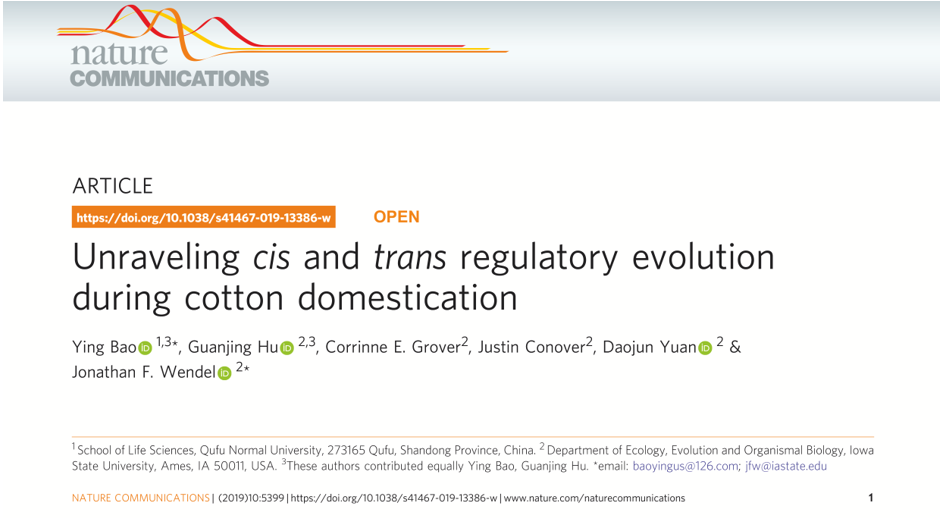Recently, Professor Bao Ying of the school of life sciences of QFNU published academic papers titled "Unraveling cis and trans regulatory evolution during cotton domestic demonstration" in a top international journal Nature communications. Qufu Normal University is the first signing unit and the first correspondence signing unit. This is another breakthrough in the field of cotton domestication research after Professor Bao Ying published an article on PNAS with QFNU the first signing unit.

Cis and trans regulatory divergence underlies phenotypic and evolutionary diversification. Relatively little is understood about the complexity of regulatory evolution accompanying crop domestication, particularly for polyploid plants. The team of professor Bao Ying compare the fiber transcriptomes between wild and domesticated cotton (Gossypium hirsutum) and their reciprocal F1 hybrids, revealing genome-wide (~15%) and often compensatory cis and trans regulatory changes under divergence and domestication. The high level of trans evolution (54%–64%) observed is likely enabled by genomic redundancy following polyploidy. With respect to regulatory evolution, the two subgenomes of allotetraploid cotton are often uncoupled. Overall, their work underscores the complexity of regulatory evolution during fiber domestication and may facilitate new approaches for improving cotton and other polyploid plants.
Bao Ying is now a second-class professor, doctoral supervisor of QFNU, outstanding communist party member of Shandong Province, outstanding talents of the Ministry of education in the new century, young and middle-aged experts with outstanding contributions of Shandong Province, and winner of the youth science and technology award of Shandong Province.
( Sourced from Science and Technology Department, School of Life Sciences; Edited by QFNU News Center )
 HOME
>
Content
HOME
>
Content

















 鲁公网安备 37088102000140号
鲁公网安备 37088102000140号